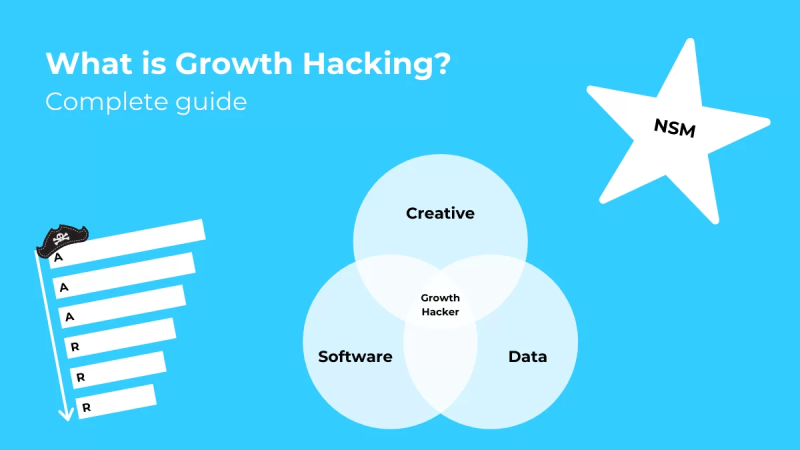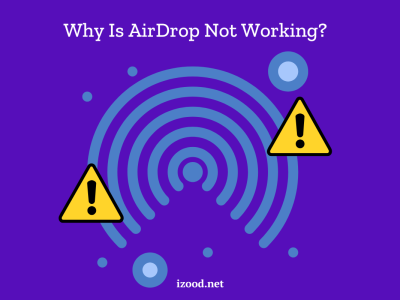Growth hacking is a process of rapid experimentation across marketing, product development, sales, and other channels in order to identify the most effective, efficient ways to grow a business. A growth hacker is someone who has a passion for data and is constantly looking for new and innovative ways to grow a company. They are not afraid of change and are always testing new theories to see what works and what doesn’t. If you’re interested in becoming a growth hacker or want to learn more about what they do, then this blog post is for you. We will explore the definition of a growth hacker, their toolkit, and some of the most successful growth hacking campaigns.
-
Google Analytics
-
Matomo
-
Mixpanel
-
Adobe Analytics
-
Heap
-
Contently
-
Buzzsumo
-
StoryChief
-
Wave.video
-
Social Animal
What is a Growth Hacking tool?
Growth hacking is a term that is often used in the business world, but what does it actually mean? Growth hacking is a process of rapid experimentation across marketing, product development, sales, and other channels in order to find the most efficient way to grow a business.
You can also read: Top 10 tools for data analysis to use
In other words, growth hacking is all about finding creative and unconventional ways to promote and grow a business. This can be done through online channels such as social media or email marketing, or offline channels such as print or television advertising.

The goal of growth hacking is to identify the most effective means of growing a business quickly and efficiently. This involves testing different marketing strategies and tactics to see what works best. Once a growth hacker finds a successful strategy, they will then scale it up to reach even more people.
Growth hacking is an important tool for businesses of all sizes. If you’re looking for new and innovative ways to promote your business, then growth hacking may be right for you.
The different types of Growth Hacking tools
Growth hacking tools are used by marketers to help them identify and track the most important growth metrics for their business. There are a number of different types of growth hacking tools available, each with its own advantages and disadvantages.
One popular type of growth hacking tool is the A/B testing tool. This type of tool allows marketers to test different versions of their website or app against each other to see which one performs better. A/B testing can be used to test everything from the copy on a landing page to the design of an app icon.
Another popular type of growth hacking tool is the marketing automation tool. This type of tool helps marketers automate repetitive tasks, such as email marketing or social media posting. Marketing automation can free up a lot of time for marketers so that they can focus on other aspects of their job.
There are also a number of tools that help with customer segmentation and targeting. These types of tools can help marketers identify their ideal target customers and then create content and marketing campaigns that are specifically tailored to them.
Finally, there are a number of analytical tools that can be used to track progress and performance over time. These types of tools can help marketers see which areas need improvement and which ones are performing well.
How to find the right tools
There are a lot of growth hacking tools out there. And with so many options, it can be hard to know which ones are right for you and your business.
That’s why we’ve put together this complete guide to growth hacking tools. We’ll help you understand what these tools are, how they can help you grow your business, and how to find the right ones for your needs.
So, let’s get started!
Here are the top 10 Growth Hacking tools :
1. Google Analytics
Google Analytics is a free, powerful, and easy-to-use website analytics tool that gives you the insights you need to help grow your business. You can review data on user behavior, including what devices they’re using, how long they stay on your site, and where they exit. You can also see the demographics of your visitors and compare the conversion rates for different marketing campaigns.
Pros:
- Easy to install and use
- Accurate data
- Funnels and marketing insights
- User-friendly interface
- Free
Cons:
- Can be overwhelming with all the data available
- Not as customizable as some other tools
- Limited support options
2. Matomo
Matomo is a free, open-source analytics software that helps you understand what your website visitors are doing so you can make informed decisions about how to improve their experience. With Matomo, you have the power to collect more than just page views! You can track and measure the impact of your marketing campaigns, web forms, live chat sessions, and more in order to create better customer experiences.
Pros:
- 100% data ownership
- Ethical analytics tool
- User-friendly interface
- Detailed reports
- Customizable
Cons:
- Does not integrate with all platforms
- Can be expensive for some users
- Limited customer support
3. Mixpanel
Mixpanel is an advanced analytics platform that gives you the power to understand your customers. It’s a simple, powerful and flexible way to collect data from a wide variety of sources and then make sense of it all. Mixpanel is easy to set up and comes with zero infrastructure to maintain.
Pros:
- User-friendly interface
- Powerful analytics
- Flexible integrations
- Simple reports
- Helps prioritize product development
Cons:
- Can be expensive for some users
- Limited customer support
- Some features can be difficult to use
4. Adobe Analytics
Our solution is the perfect way to monitor your pages and visitors alike. Adobe Analytics applies real-time analytics and detailed segmentation across your marketing channels, with a broad suite of solutions that include campaign tracking, ROI analysis and custom reporting. The tool brings many benefits with its vast abilities, but it can also bring complexity when used in conjunction with other tools such as Google Analytics.
Pros:
- Applies real-time analytics
- Offers detailed segmentation
- Can tap into big data
- Integrates with other Adobe products
- Offers many solutions
Cons:
- High complexity
- Can be expensive
- Requires training to use
5. Heap
Making the most out of your digital investments has never been easier thanks to Heap. This growth hacking tool gathers all information about your customers automatically, making it easy for you to see what they do on your product or site. By using this insights platform, more than 8,000 companies have managed to find data that is valuable to their optimization process.
Pros:
- Heap is easy to use and set up
- Collects data automatically
- Helps you find valuable insights
- 8,000+ companies are using it
- Has a free trial
Cons:
- Monthly subscription fee
- Can be challenging to understand all the data
- Not compatible with all devices
6. Contently
Contently is the world’s best-in-class content marketing platform. We empower companies of all sizes to create, assign and manage original content on brand and at scale. Built with enterprise companies in mind, Contently offers flexible workflows that help you streamline your approval processes and manage all your contributors in one place.
Pros:
- Customizable workflows
- Scaleable
- On-brand content
- Amazing, original content
- Tech, talent, and strategy all in one place
Cons:
- Not built for small businesses
- Can be expensive
- Learning curve
7. Buzzsumo
Want to know what content drives engagement and shares? Buzzsumo helps you find the most popular content on the web. It allows you to get a ton of content insights that will help you shape your marketing strategy overall. The content has four main functions: Discovery lets you explore high-performing content, Alerts lets you find new hot topics in real time, Analytics shows you how social media is affecting your posts, and Share lets you share the content with people that are in your network.
Pros:
- Helps you find popular content
- Gives you insights into what content is doing well
- Helps shape your marketing strategy
- Easy to use
- Affordable
Cons:
- Limited to online content
- Some features can be confusing to use
- Not all features are available on the free version
8. StoryChief
StoryChief is an online tool designed to help you centralize and distribute your content. Let us take the pain out of your distribution tasks. We are constantly evolving to make this task easier for you by keeping our content management system up-to-date with the progress of these new technologies.
Pros:
- Streamlined content distribution
- Automated social media posting
- User-friendly interface
- Comprehensive analytics
- Affordable pricing
Cons:
- Limited integrations with other software
- No mobile app
- Can be difficult to learn
9. Wave.video
Wave.video is a video marketing platform that allows you to create videos and host them the easy way. Wave.video was created for people that want to show their business in action, but don’t have the tools or experience to do so.
Pros:
- Easy to use
- Intuitive interface
- No video editing experience necessary
- Includes music and sound effects
- Affordable
Cons:
- Limited customization options
- Some features require a paid subscription
- Requires a strong internet connection
10. Social Animal
Social Animal is a great tool for competitive research and finding influencers from your niche. Whereas Buzzsumo focuses on Twitter, Social Animal does so for Facebook. Accordingly, the tool has a dynamic keyword and page search to help you with your content curation on Facebook. Additionally, you can track the performance of keywords of all kinds of posts.
Pros:
- Helps with competitive research
- Helps find influencers
- Dynamic keyword and page search
- Tracks performance of keywords
- Easy to use
Cons:
- Not as many features as some other similar products
- Can be expensive for some users
- Some users have reported issues with the search function
Alternatives to Growth Hacking tools
There are many different growth hacking tools available to businesses. However, not all businesses need or can afford to use all of the different tools. Here are some alternatives to growth hacking tools:
- Social Media: Social media can be a great way to connect with potential and current customers. It can also be used to generate leads and boost sales.
- Content Marketing: Content marketing is a great way to attract attention to your business and products. Creating high-quality content that is relevant to your audience can help you build trust and credibility, and ultimately boost sales.
- Search Engine Optimization: Optimizing your website for search engines can help you attract more visitors to your site, which can lead to more sales.
- Email Marketing: Email marketing can be a great way to reach out to potential and current customers. Sending targeted emails with valuable information can help increase leads and sales.
- Traditional Advertising: Traditional advertising methods, such as print, television, and radio, can still be effective in reaching out to potential customers.
Conclusion
So there you have it! A comprehensive guide to growth hacking tools that will help you take your business to the next level. No matter what stage of growth your business is in, these tools will give you the boost you need to reach new heights. So what are you waiting for? Start using these tools today and see how they can help you grow your business!

![How to Pause Location on Find My iPhone Without Them Knowing? [2024] 17 how to pause location on find my iphone](https://izood.net/wp-content/uploads/2024/10/How-to-Pause-Location-on-Find-My-iPhone-Without-Them-Knowing-400x300.png)


![How To Inspect Element on iPhone [4 Methods] 20 how to inspect element on iphone](https://izood.net/wp-content/uploads/2024/10/how-to-inspect-element-on-iphone-3-400x300.png)


